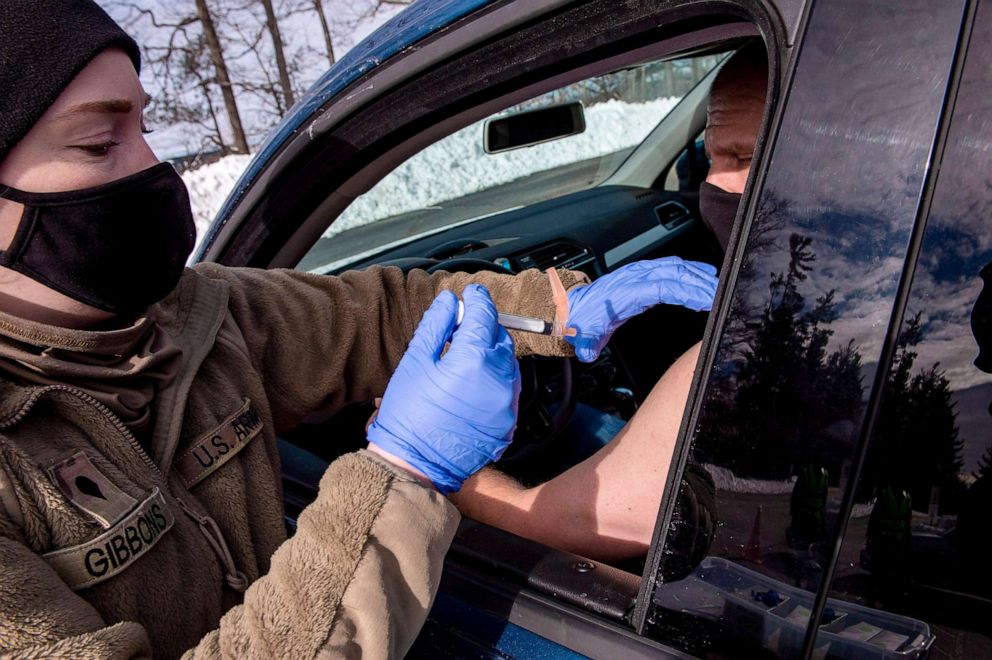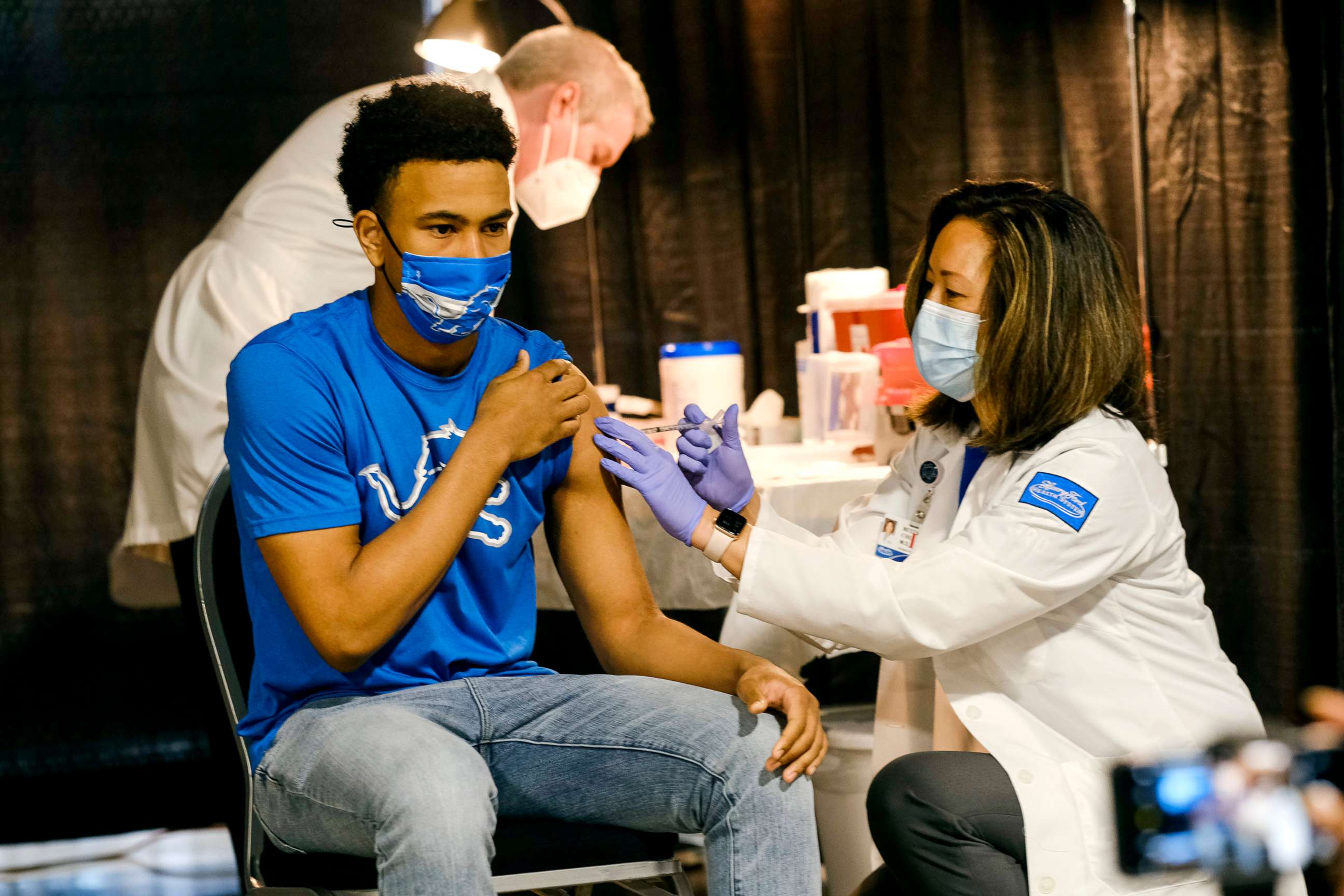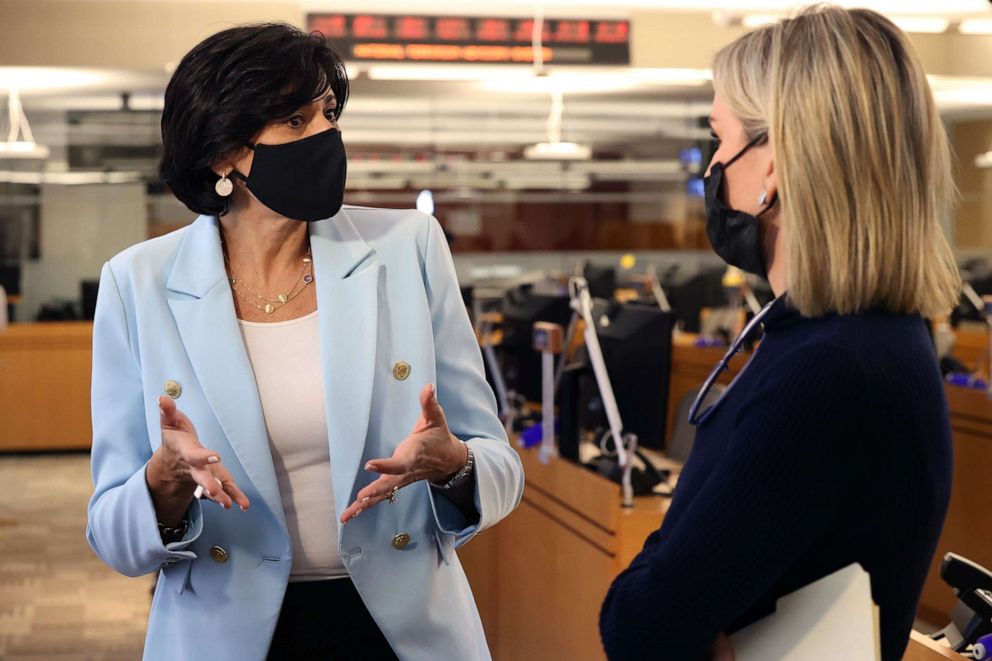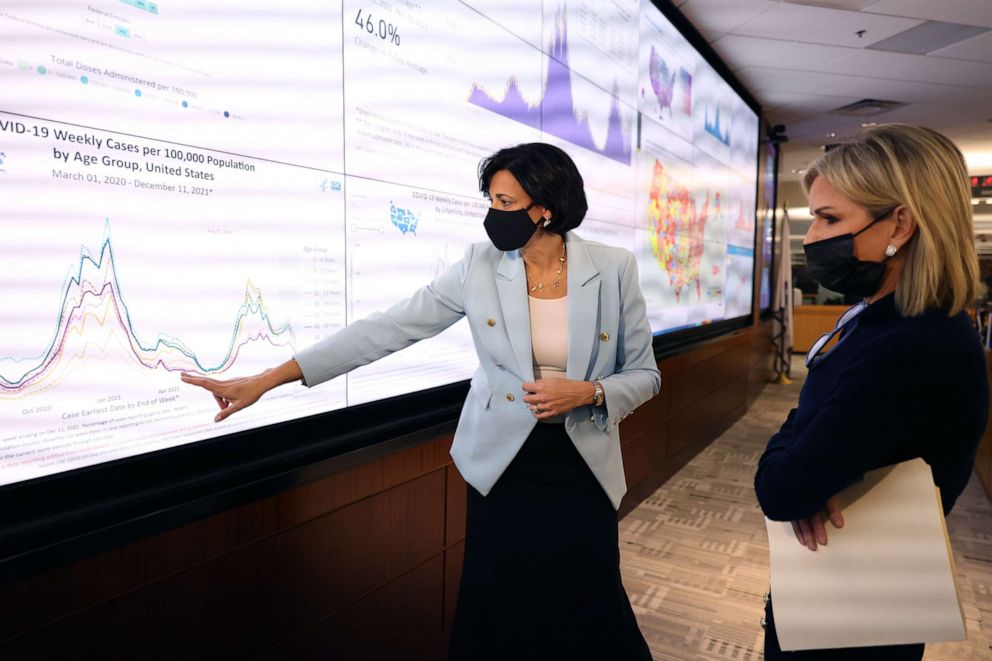US daily case average up by nearly 83% since October
COVID-19-related hospital admissions in the U.S. are up by 47% in the last month, according to federal data. Nearly 80% of adult ICU beds are full.
The U.S. is now reporting more than 117,000 new cases each day. The daily case average has surged by nearly 83% since late October, according to federal data.
New Hampshire holds the nation's highest case rate, followed by Michigan, Minnesota, Rhode Island, New Mexico, Indiana, Vermont, Massachusetts and New York.

-ABC News' Arielle Mitropoulos







